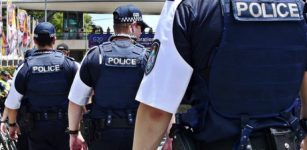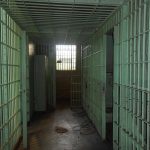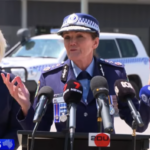Police Admit Destroying Vital Evidence in Serious Criminal Cases

A woman who was allegedly gang raped is just one of many left without access to justice after Queensland police destroyed crucial evidence.
The revelation, comes from Brisbane woman Eve* (not her real name) and was discovered as she pressed police for a fresh investigation two decades after reporting a brutal sexual assault by a group of men on her 21st birthday.
Queensland Police admit destroying evidence
Queensland Police have since admitted that evidence from her case – including her dress and underwear and other potential sources of DNA taken during the initial investigation have been destroyed, crushing all hopes Eve had of ever seeking justice against a group of at least four men whom she alleges gang raped her and passed her around like a ‘rag doll’ after she left a nightclub where she had been celebrating her birthday with a friend.
The victim says that through a series of secret recordings of conversations as well as email exchanges, she realised that her case was not isolated.
The ABC has published a covert recording of a conversation between a QPS detective and Eve, in which the detective tells Eve she is uncertain how the original evidence was lost.
In the conversation, the detective admits there was a “process… probably within the last two or three years where there were things that were destroyed.”
‘They were moving storage points … there was things that have been destroyed not just in your case, in cases …’ says the detective.
Breach of the Retention and Disposal Schedule
In a statement, Queensland Police have denied there was a “decision made to destroy evidence in contradiction of the Retention and Disposal Schedule” – a policy which requires records in sexual assault cases to be kept for 75 years. But Police have made no comment on the specifics of the case of the victim in question except to say that the matter is part of an ongoing investigation.
‘Loss’ of evidence highly concerning
Legal experts say that the ‘loss’ of police evidence is both alarming and highly concerning from a legal perspective, with one going so far as to say that for the evidence to be tampered with in any way was a breach of the state’s new Human Rights Act, which was legislated in February this year, enshrining into law protection for Queenslanders’ on a number of issues, including rights to freedom of expression, religion and privacy, and a right to education and health.
Queensland Women’s Legal Service lawyer, Julie Sarkozi, believes that the fact that Eve’s private information was interfered with, without her knowledge or consent is a clear breach of the new Queensland Human Rights Act.
Lack of process or support
Crucial evidence may have been destroyed, but Eve’s police file shows that within hours of the attack she presented to the Royal Women’s Hospital sexual assault unit in Brisbane where medical examiners found “results consistent with the complaint”.
An original police investigation was undertaken in 1995, but Eve was unable to identify the location of the attack and there were no witnesses. She heard nothing more from police until March 2006, when a QPS detective told her about a DNA match on one suspect.
At the time, Eve was reluctant to go to court to help prosecute just one offender. But her file also reveals that months later, police found the suspect and an associate who lived in the area at the time of the offence.
The associate volunteered a DNA sample and the names of two other friends from that time.
However, Eve said she was not contacted or told about the new leads, including that there was a second unidentified DNA profile on the swab and subsequently heard no more from police until recently, and the subsequent discovery that the evidence had been destroyed.
New investigation brings hope
Eve’s case has now been handed to the police sexual crime team, and it relies on one single remaining swab. There is hope that progress will be made, and Eve may see the prosecution of at least one alleged offender.







